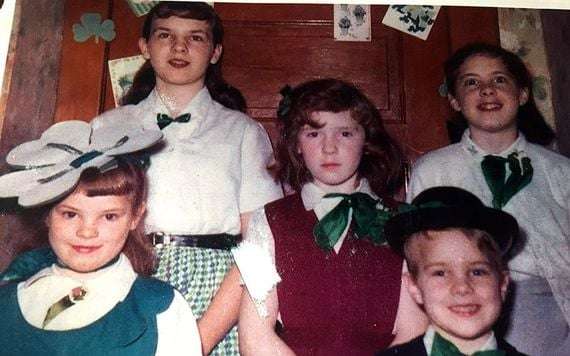Before you begin your Irish ancestor search, take stock of what you already know. Take notes and get family members to talk about their memories.
Start by checking out this helpful introductory guide to researching in Ireland. You’ll also find some valuable links for specific Irish county genealogy centers.
Censuses
While many Irish families emigrated, they still left behind essential records. One of the most useful is the census, which provides information like age and occupation. The National Archives of Ireland provides free searchable indexes and downloadable PDF copies of the original 1901 and 1911 censuses.
Other vital surviving records include Griffith’s Valuation, a detailed land survey compiled between 1848 and 1864 that reveals your Irish ancestor’s residence. This is a significant source for 19th-century family history, although its digitization continues to be slow.
Another great resource is the Public Record Office of Northern Ireland website, which makes church records available online. These can reveal all sorts of clues, such as godparents and witnesses. They can also lead to other valuable sources, including tithe applotment books, soldiers’ wills, diocesan and prerogative marriage license bonds, shipping agreements, and crew lists.
Civil Records
Civil registration of births, marriages, and deaths in Ireland began in 1864 for non-Catholic marriages and 1864-1870 for Catholic marriages. These records are valuable for tracing ancestors in the late 19th and 20th centuries.
The names of your Irish ancestors can tell a story. In addition to their full name, try to establish their baptismal date and place of birth – these details will help you in your research. The religion of your ancestors will also provide clues about the area in which they lived – in Ireland, both Catholic and Protestant (Anglican) denominations exist.
Civil registration for non-Catholic marriages began in 1845 and for all births and deaths in 1864 in the Republic of Ireland. Some ancestors chose not to register their events with the civil authorities, and some records need to be completed, especially for those born before 1864.
Fortunately, many Ireland online genealogy records are available. The General Register Office in the Republic of Ireland provides access to these for free through Irish Genealogy. In Northern Ireland, certificates are available for a fee through GROI.
Church Records
Before Ireland became a republic in 1922 and civil registration replaced church-based registration of births, deaths, and marriages, Irish families used church records as the primary source for their family history. As such, church records are incredibly useful for researching ancestors before 1864. Church records will provide information about your ancestor’s religion and the name of the place (town or village) where they were born and raised since parish registers were collected and remain, to some extent, accessible at a localized level.
The national library has microfilmed most Catholic parish registers and has indexed these online. However, many early records were blown up in a fire at the NLI in 1922.
The NLI also transcribed church records for genealogical purposes, also available online. However, the quality of these transcriptions varies significantly, and the collection still needs to be completed.
National Library of Ireland
If you want to research Irish family history independently, the National Library of Ireland offers free access to various historical documents. Among the most useful are the church records of baptisms, marriages, and deaths from 1,091 Catholic parishes in Ireland before the beginning of civil registration in 1864. The website also provides Irish census substitutes, ship passenger lists, and several other documents, such as the registry of deeds memorials.
Besides its digitized collection of records, the National Library also maintains a Genealogy Advisory Service on Kildare Street in Dublin, available for free walk-in consultations. There are information leaflets and various genealogy resources to help you find your way around the library’s collections.
The site also hosts the free, basic version of the genealogical arm of the Church of Jesus Christ of Latter-day Saints. It’s a great place to search for civil registration indexes and other digitized records. However, you must pay to view the original microfilms of church records and other collections.
Irish Genealogy
The Irish emigrants who made Saint Patrick’s Day a worldwide celebration were part of centuries-long waves of migration from the island. Researching those ancestors can be more complicated than researching other ancestors.
Often, finding an Irish ancestor starts in church records. This includes church records for births, deaths, and marriages. However, looking at various other sources, including old newspapers, is essential.
For example, newspaper articles about family members who died can provide clues about the spelling of the surname and even if the person was born in the Republic or Northern Ireland. They can also show whether an ancestor was Catholic or Protestant and where they went after leaving the country.
The Church of Jesus Christ of Latter-day Saints has an agreement with the National Archives of Ireland to duplicate many record sets for genealogy purposes. It’s free to use, but it may take patience to find the right match. Other online resources for Irish genealogy include workhouse, union, and poverty relief loan records; tithe applotment books; and Calendars of Wills and Administration.
Also, Read: 5 Questions To Ask At Homes For Sale



















